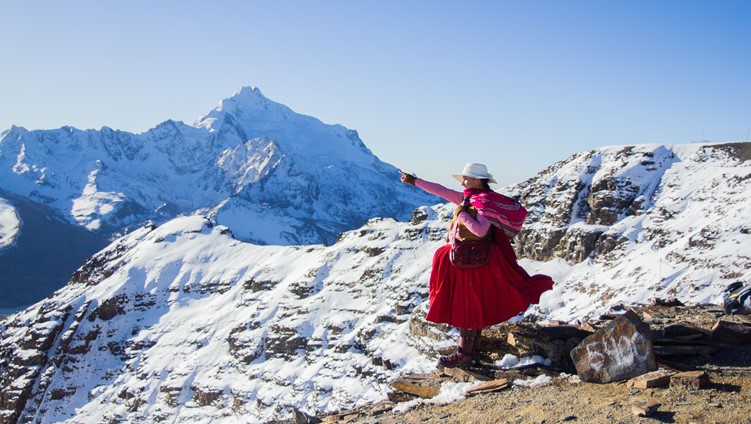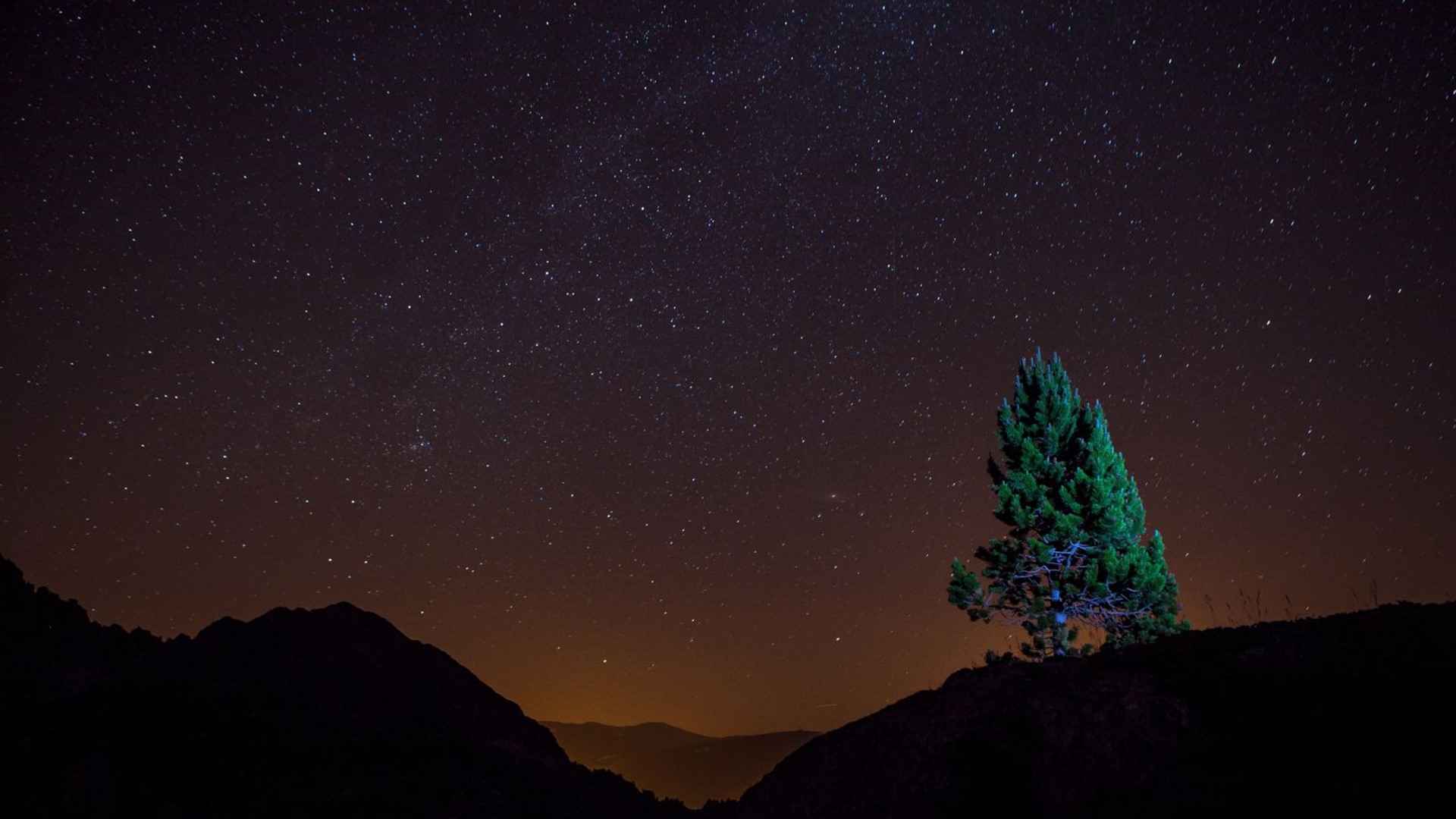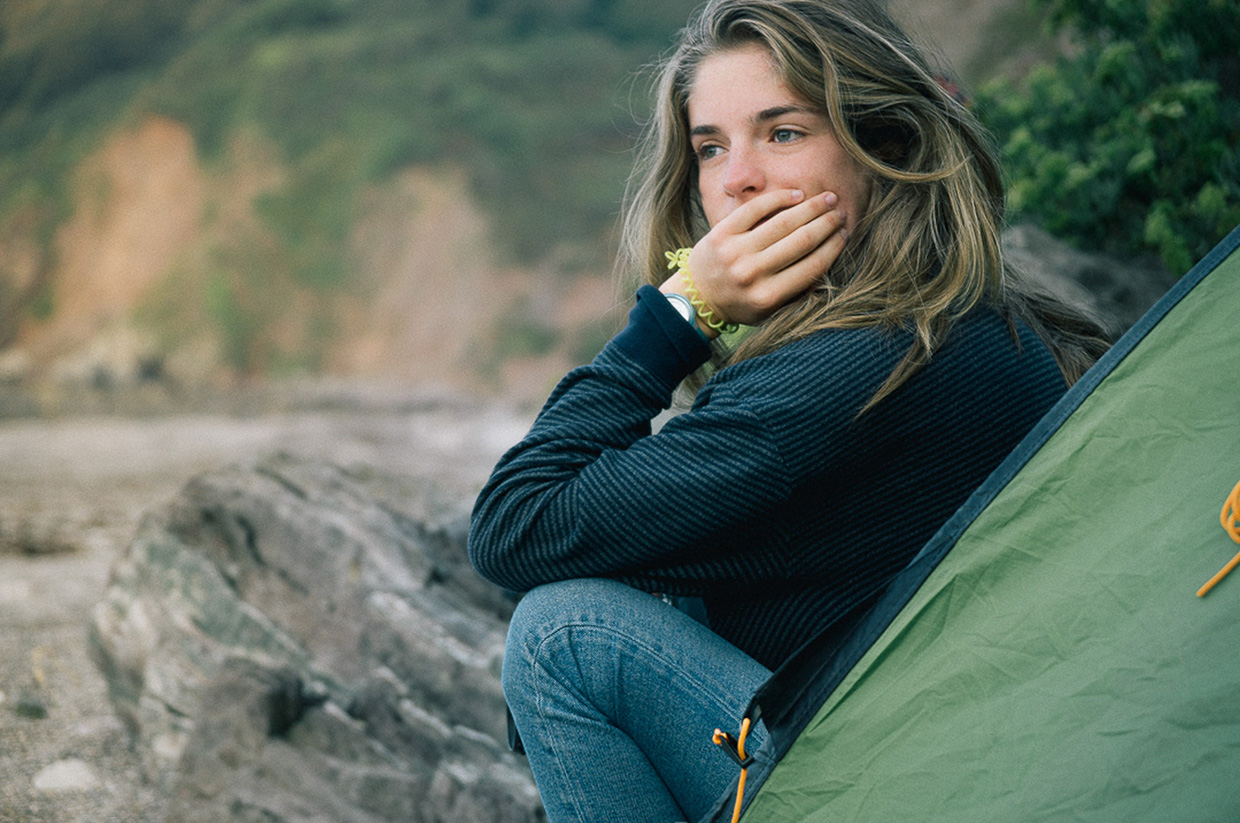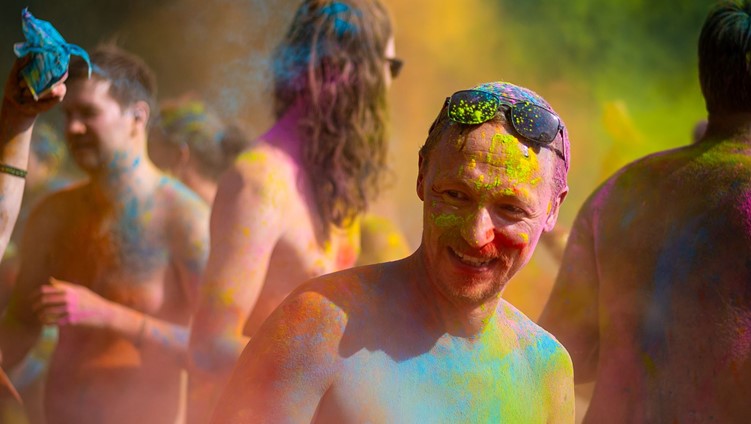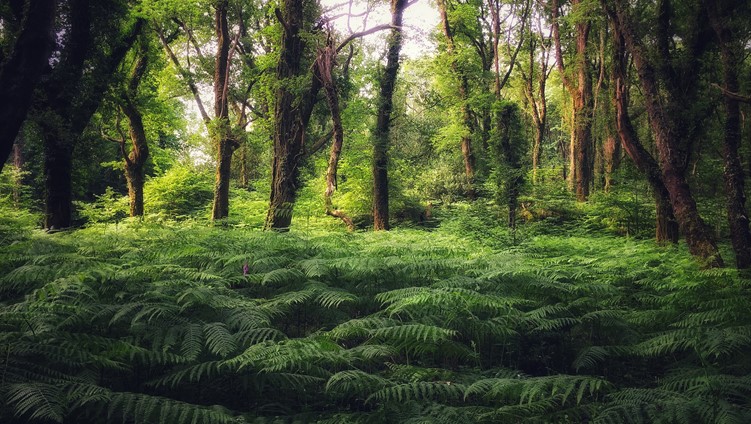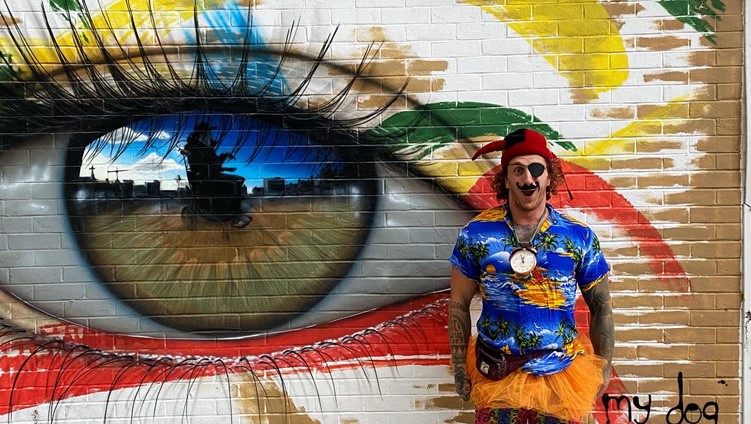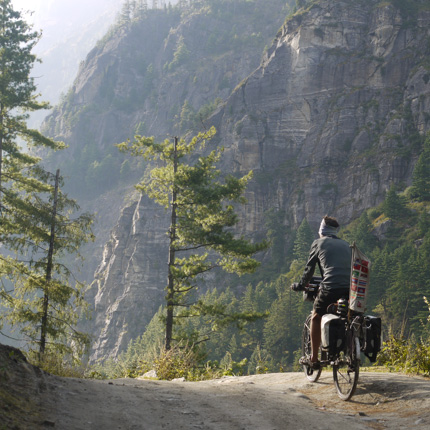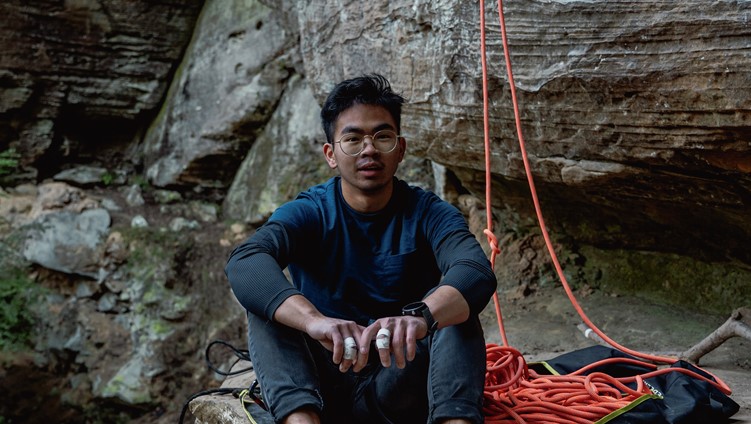
Terms like ‘ethical’ and ‘sustainable’ are being thrown around the outdoor industry like a cheap volleyball on a windy day at the beach – a token gesture not fit for purpose, sure to come crashing down when the wind picks up.
We know that the process of creating products takes its toll on the environment, and that vast quantities of non-recyclable products are being churned out to the planet’s detriment for short-term financial gain.
Leaders in sustainability and the outdoor gear industry Andy Middleton, Tom Kay and Tim Frenneaux are tackling the issue head-on by manufacturing, selling and promoting the importance of truly sustainable products, rather than using ‘sustainability’ as a trendy marketing term to lure in wealthy consumers.
Andy Middleton – founder of TYF Group, co-founder of DO Lectures and a board member of Natural Resources Wales – says that in 3.8 billion years of evolution, humans are the only species to break the rules of nature and to make things that can’t be used by other species.
“We’ve designed an economy, with the best intent at the time, without knowing what the dire consequences would be, and the consequences of those decisions are coming home to roost.
“The big question is recognising that the entire global economy needs to shift and that we need to make products that are carbon positive, 100% recycled back into virgin seed stock, with zero going to landfill.”
Andy says brands that play a role in taking people into nature are in a prime position to become leaders in sustainability, and that the outdoor industry should be maintaining a gold standard for environmental practice because it depends on the health of the environment for its business.
“I’d like to see outdoor brands partnering with people who can make significant change happen, and for there to be a direct line of sight from consumer values to product design.
He reminds me that the product with the most impact is the product that you don’t buy, and thinks the outdoor gear industry should look at ways to move towards a service-based economy, where equipment – technical jackets, kayaks, DofE rucksacks – are rented out instead of purchased.
'We’ve designed an economy without knowing what the dire consequences would be, and the consequences of those decisions are coming home to roost.'
Cold water surfing brand Finisterre, which in February 2018 became B Corp-certified, has partnered with a leading materials professor at Exeter University in a project to make wetsuits from wetsuits.
Founder of Finisterre Tom Kay says the project is a financial risk: “We have no idea whether the project is going to be successful, I may not see a financial return on the project for two, three, five years, but we’re committed to finding a way to make wetsuits more sustainable.”
'We’re committed to finding a way to make wetsuits more sustainable.'
He says corporate decisions are often made with the short-term in mind, but that businesses like his have to take a long view on growth if they want to be truly sustainable. He admits that for small businesses it’s hard to take such risks as there’s less disposable capital to play with, so it’s down to larger businesses to take a long-term view about growth, sustainability and the environment.
Tom says the best product is the one that lasts the longest: “The longer you have it the more you love it, and that’s the idea we’re trying to build into our products – our design mantra is ‘buy once, buy better.”
Founder of Gather Outdoors Tim Frenneaux fears that sustainability is fast becoming a marketing phrase, when really it’s about the survival of our species.
“The top and bottom of it is that there’s a real danger that sustainability becomes just a marketing phrase and the way that business is working at the moment is genuinely unsustainable.
“We are living outside the carrying capacity of the Earth at the moment and we’re going to wipe ourselves out, that’s what sustainability means, it means that the human race is in danger of disappearing.”
Tim says that sustainability in the outdoor gear industry is just a drop in the ocean, but believes change happens at the margins, and knows that the technology needs to be demonstrated somewhere before it can be scaled up and made more affordable.
'There’s a real danger that sustainability becomes just a marketing phrase.'
“One of the things we find in this business of selling sustainable products is that they cost more. But it’s not the case that sustainable products cost more, it’s the case that products produced without sustainable thinking behind them externalise all their costs, either onto society or the environment.
“Businesses like ours are trying to bring all of the costs into the purchase price. We need people to understand that these products cost more because they’re worth more – they give something back.”
As Andy says “there’s no long-term future for any brand that can’t get its head around sustainability.” Humanity is pushing itself to the brink and the outdoor industry – although it may only be a drop in the ocean – needs to set a precedent in sustainability.
All three experts feel it’s their duty to demonstrate what’s possible, but it’s up to brands to take responsibility for the environmental costs of their products and it’s up to consumers to make informed decisions about their purchases, to share more and buy less.
If you’re an outdoor brand and have a story to share about how you’re making a difference to the environment, we’d love to hear from you. Comment here or drop us an email at info@adventureuncovered.com
Keep exploring

